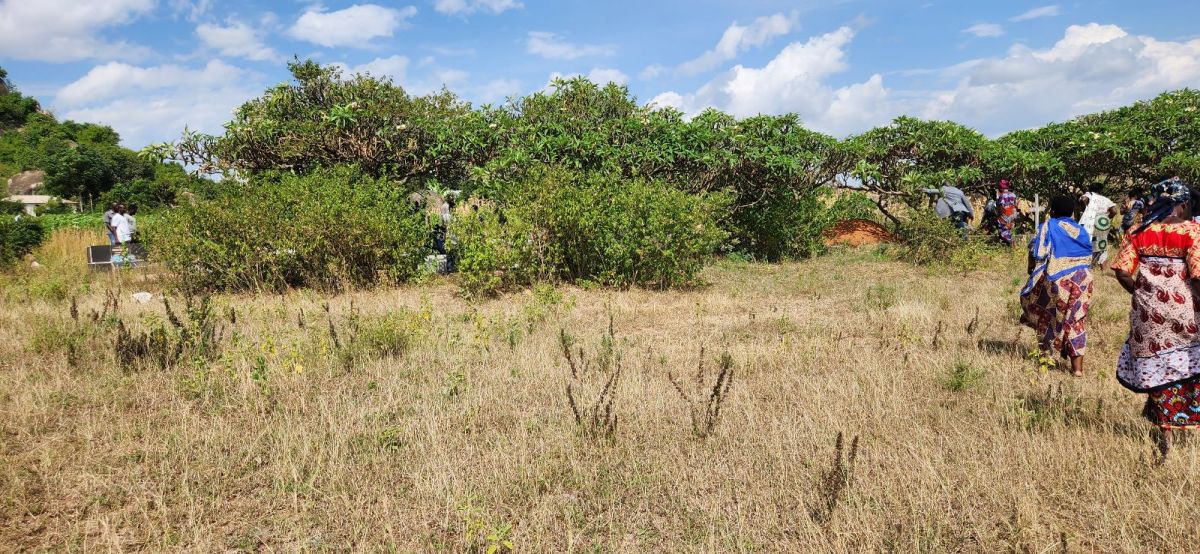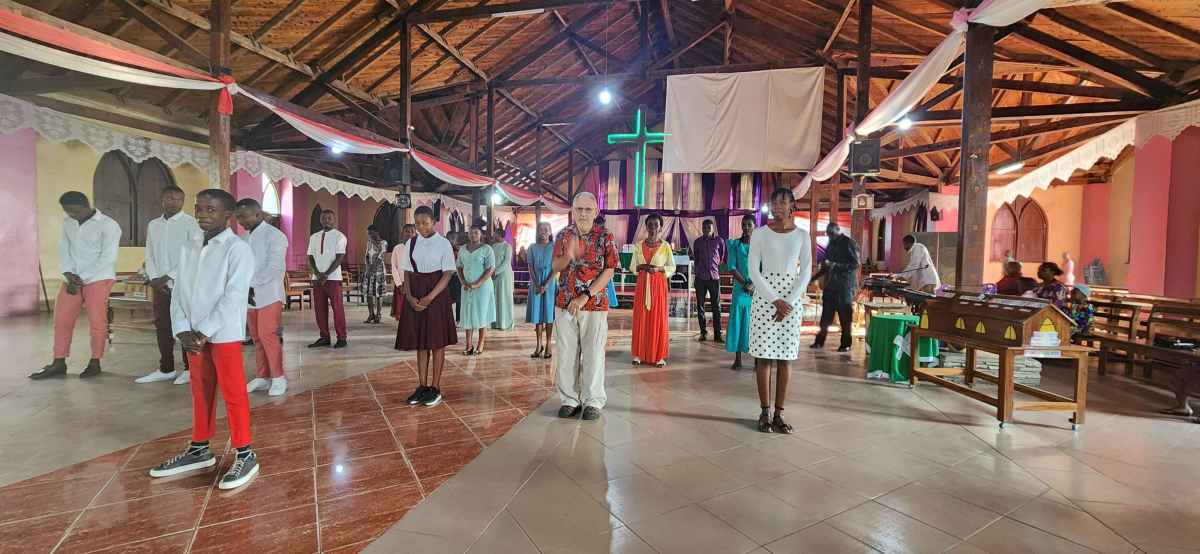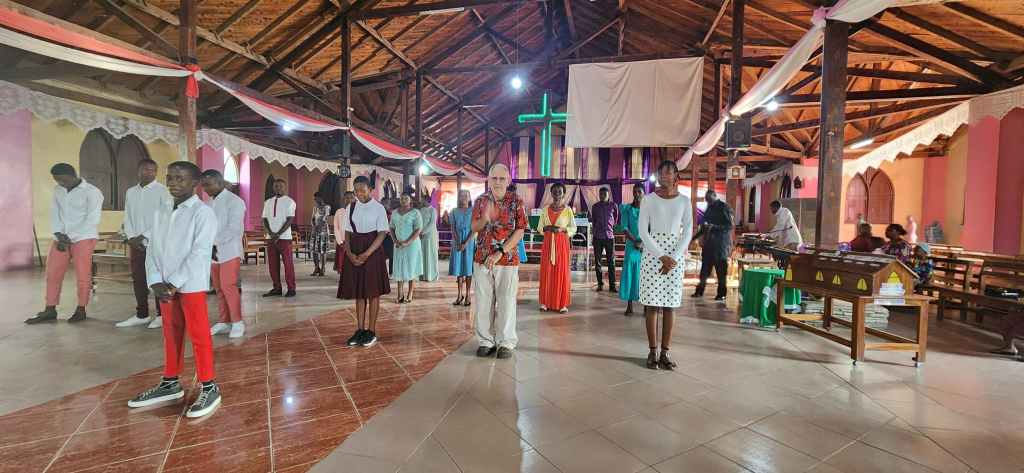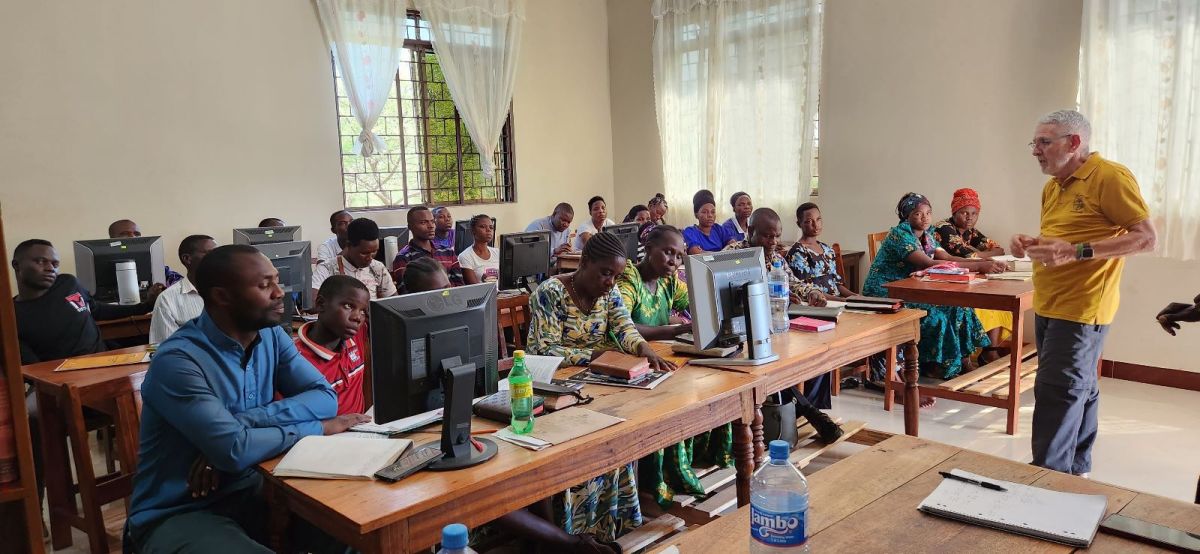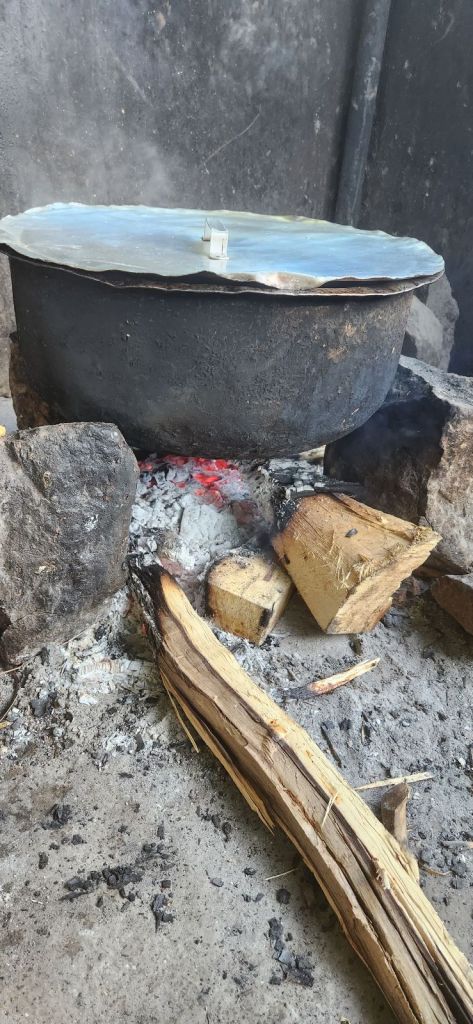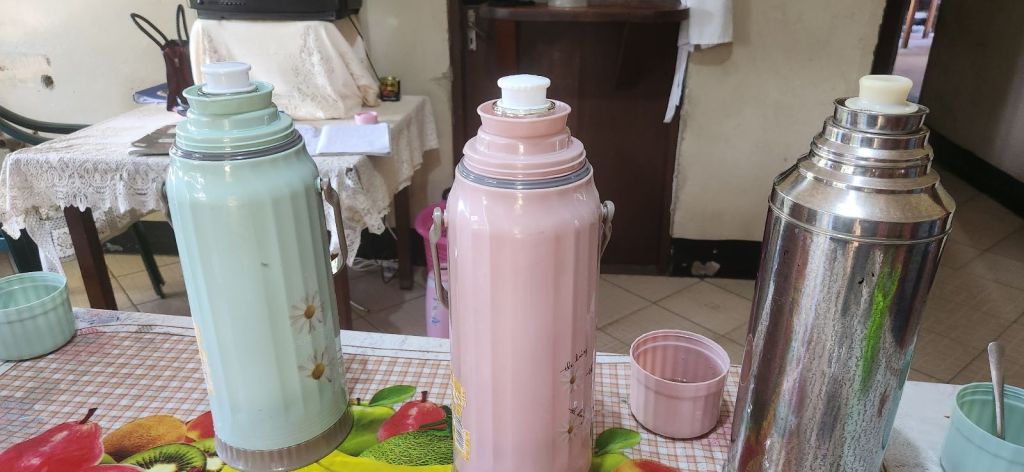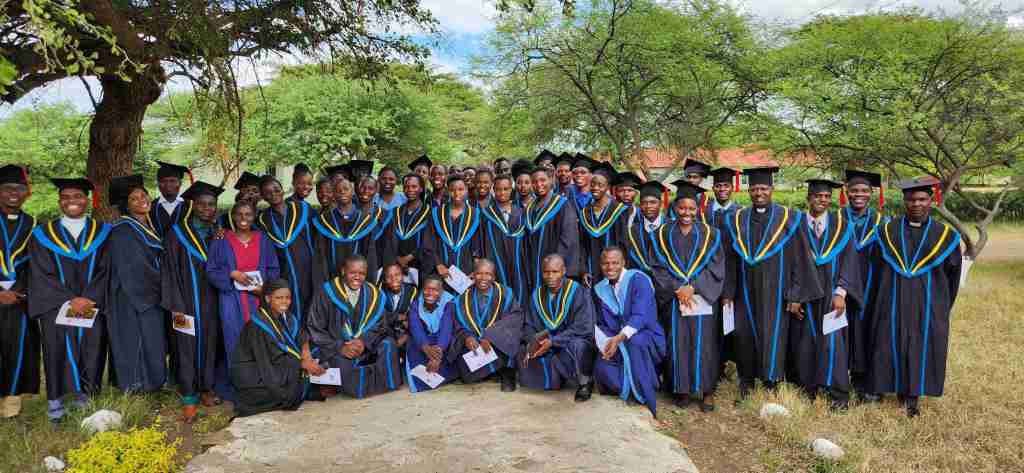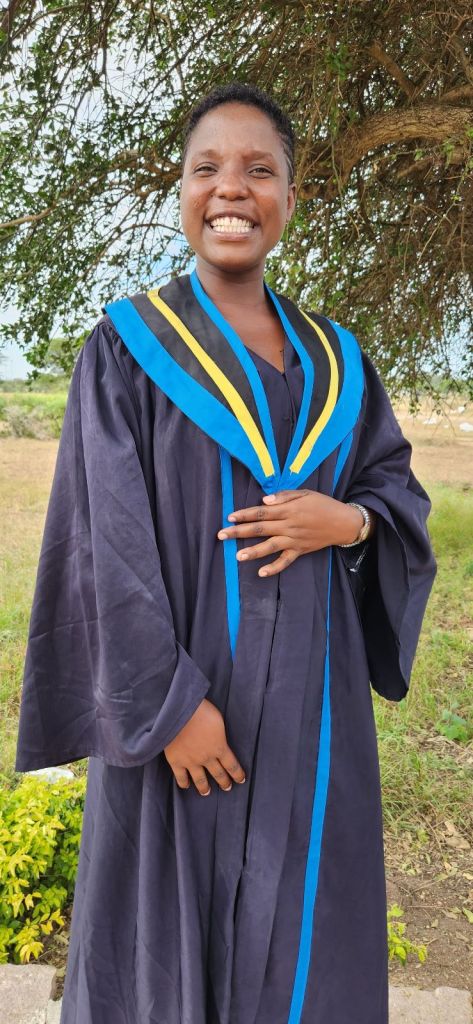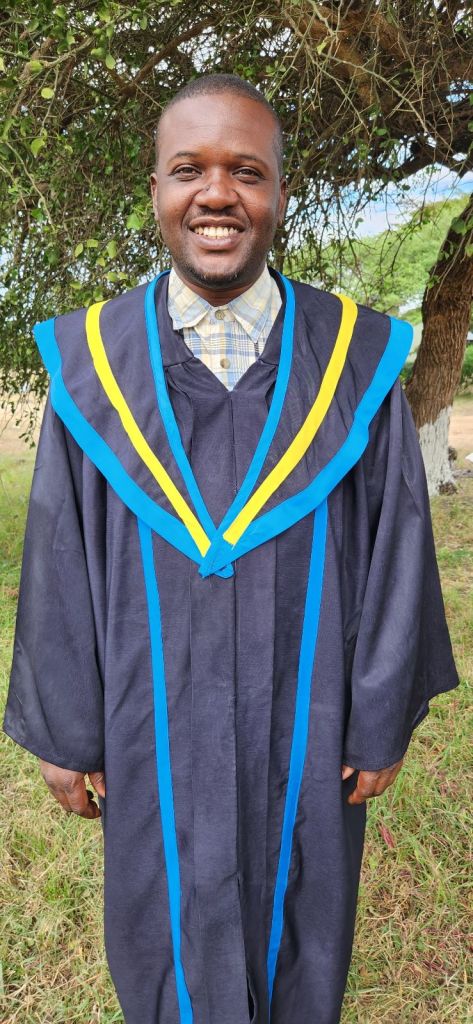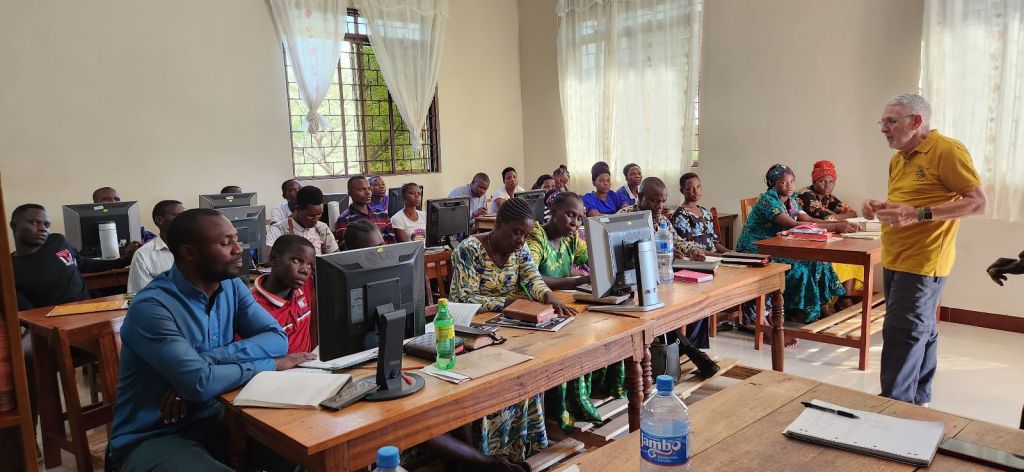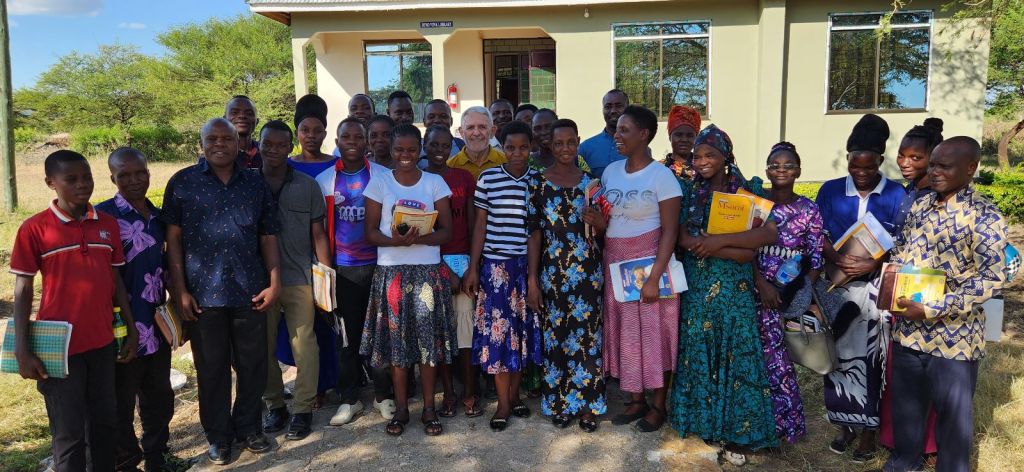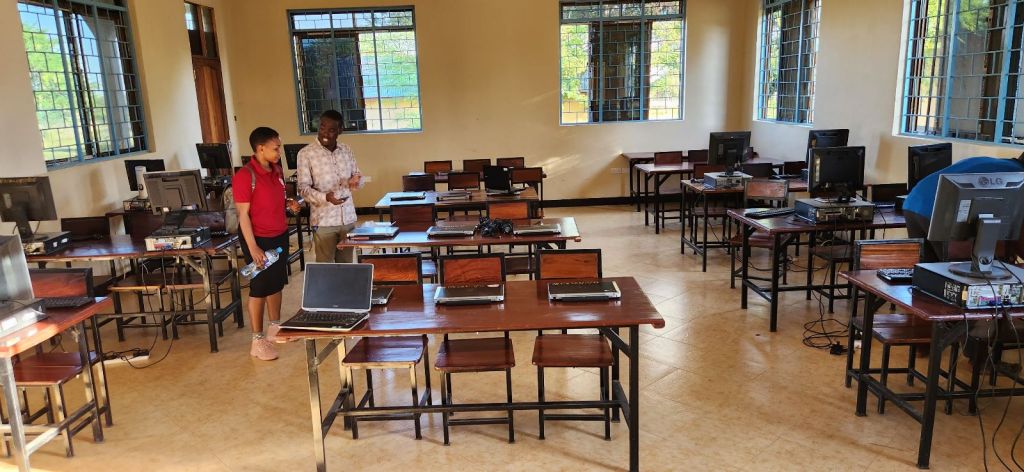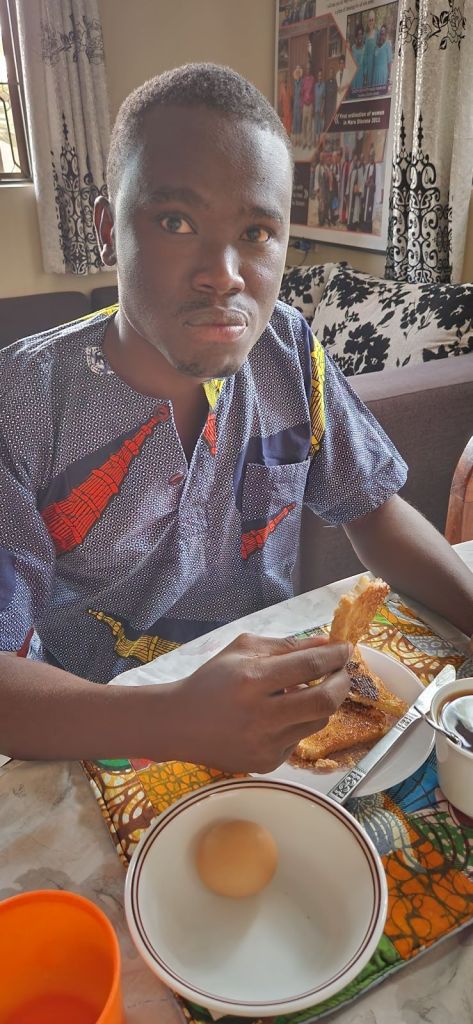This post is complex and I am having trouble networking the complex web of family relationships but hopefully I am coherent enough to make it sound sensible.
A Funeral Highlights the Complexity of Relationships in Tanzania
Bishop’s wife is like so many here is the daughter of a polygamist and the only child of her mother who was the last wife. Her own mother lives in Musoma and when in town Janet visits regularly (Janet is a teacher over 1,000 kms away) and like so many African families she and Bishop are separated by employment). She was home in June for the month of school holidays when a grandson of one of her mother’s died – a young man aged in his early thirties. This post is complex and I am having trouble networking the complex web of family relationships but hopefully I am coherent enough to make it sound sensible.
Background
Janet comes from the village of Mugango which according to Google maps is 24kms and 30 minutes from Musoma. I have visited there twice previously. The grandmother of this boy was the first wife of Janet’s father but she has dementia and in her eighties was in no way able to manage funeral arrangments apart from the fact she lived hundreds of kilomteres away. The deceased man’s biological mother had predeceased him.
So it fell on Janet, home for a month of school holidays, to take charge and manage the funeral arrangments.This essentially meant moving to her mother’s house (who should as the senior family member have done the arranging but due to age passed it on to Janet). Janet was gone for a week doing whatever, which included receiving visitors at her mother’s home which I visited one night to drop her back and found a large number of visitors sitting outside in a pre-funeral kind of wake?
So the funeral on the Thursday after Janet moved to her mother’s the previous Friday took me for a third time to Mugango. Rural village with dramatic views of Lake Victoria from the house where the funeral service was held. This was Janet’s childhood home. There are two buldings and she grew up in the front building but now her mother lives in the rear building.
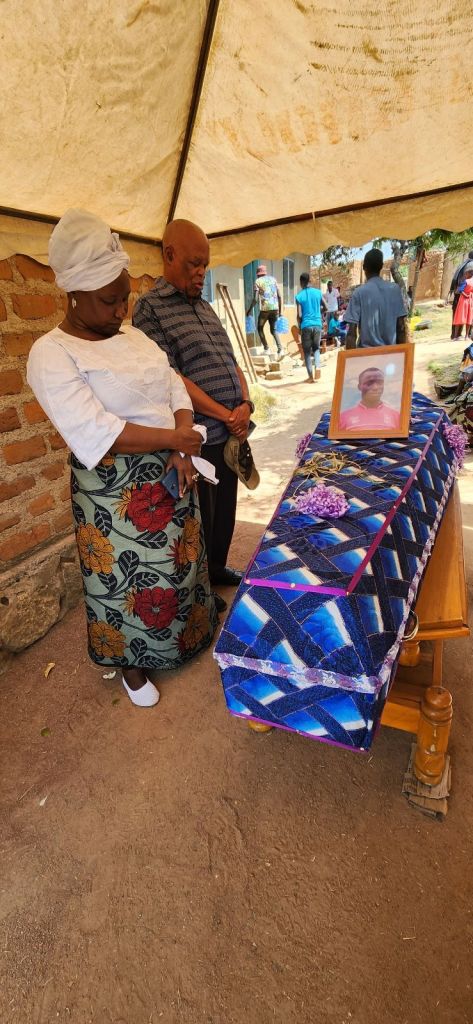
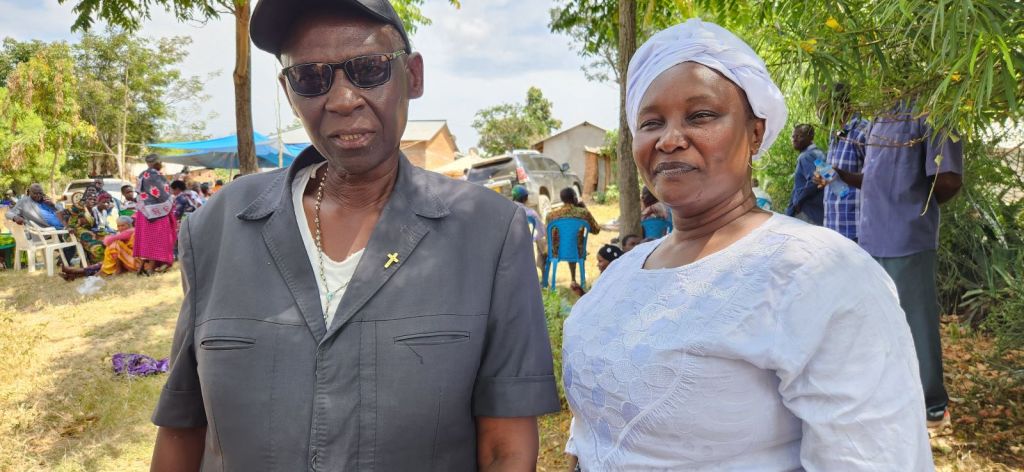
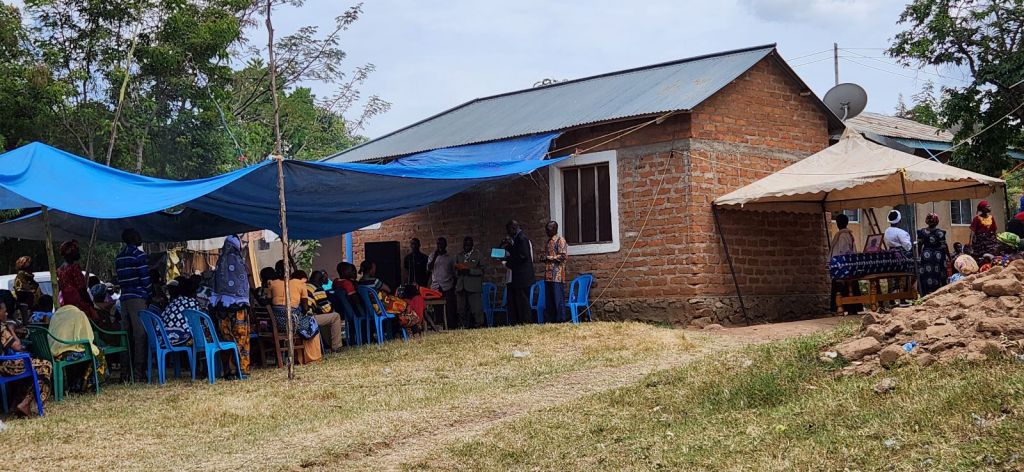
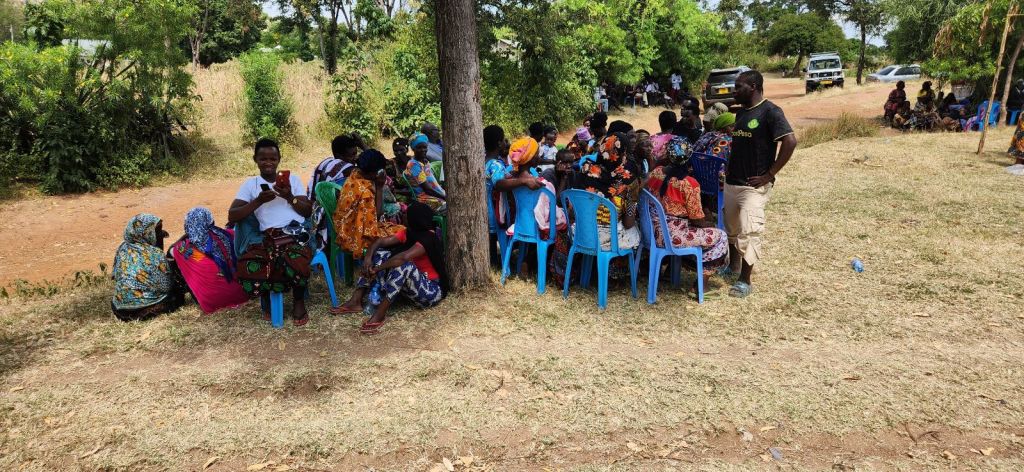
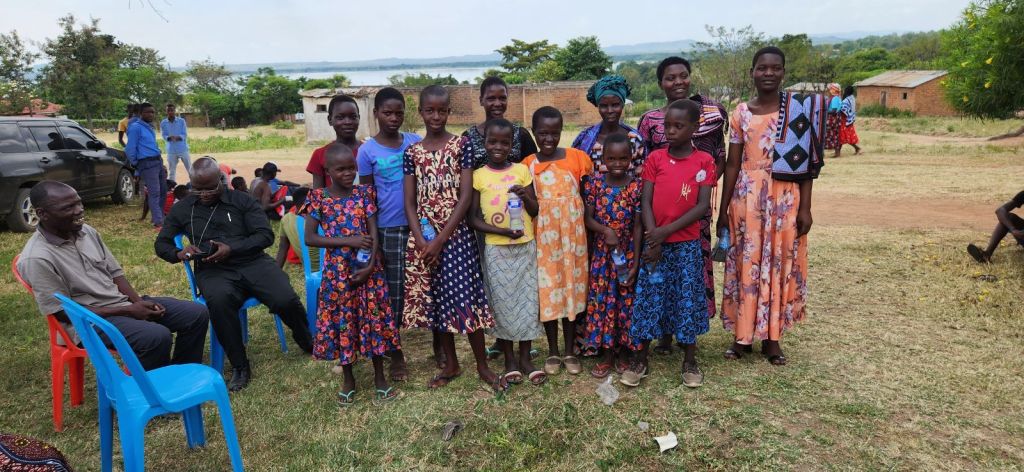
It is hard to say but my guess is that 200 plus people were sitting around picnic style on the ground spread out from the area off the front house which had a tarpaulin covering about 60-80 chairs and where the formal part of the service was to be held. The officiating clergy were the local Mennonite and Anglican pastors. Mugango was principally a Mennonite village in the missionary days, but other churches are now there but the Mennonites are the largest church.
The coffin was home made and covered in decorative cloth, laid in what we would describe as the carport or breezeway (no cars at this or most houses). People sat around on the ground, some on mattresses others on grass while the seats in the formal part were fully occupied including a choir.
On arrival I was introduced by Janet to her brothers – all Catholics. The questions started how could this be? Eventually it was explained that Janet’s father was Catholic so the children of the earlier marriages were Catholic. The grandmother with dementia was Mennonite and maintained her church membership after marriage but the children were raised Catholic. The young man who died was apparently an Adventist, but no explanation was given to me about how this came to be. The man had laft the area as a talented soccer player and spent many years in Dodoma the capital before an accident left him disabled and paraplegic.
Come making funeral arrangments, the Adventists would not officiate as there was no record of his baptism or church membership. The Catholics were approached who also used that reason to refuse to participate. In the end the Mennonite and Anglican pastor said they would share the role at the house of taking the church service but would not actually bury the young man at the graveside committal. Janet grew up in that community as a Mennonite and is married to an Anglican bishop so no doubt some connections helped her find clergy willing to help. Also the demented grandmother as noted was a Mennonite.
This actually highlights how serious church membership is taken and the fact that pastors won’t participate in funerals for people not actual members of their flock. It sounds shocking but there is a logic to it. The service at the house was done on the basis that a funeral service is for the living. But come to the burial and the poor guy was laid to rest with no prayers said. I imagine those present would have understood the seriousness of church membership. My cousin in Europe who rarely goes to church, willingly pays his church taxes on the basis that he will have a Christian funeral despite rarely gracing the church with his presence.
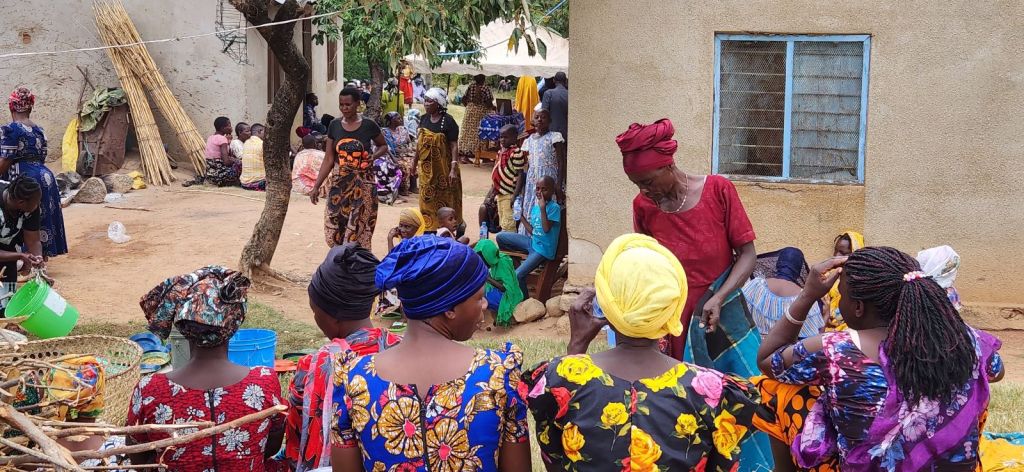
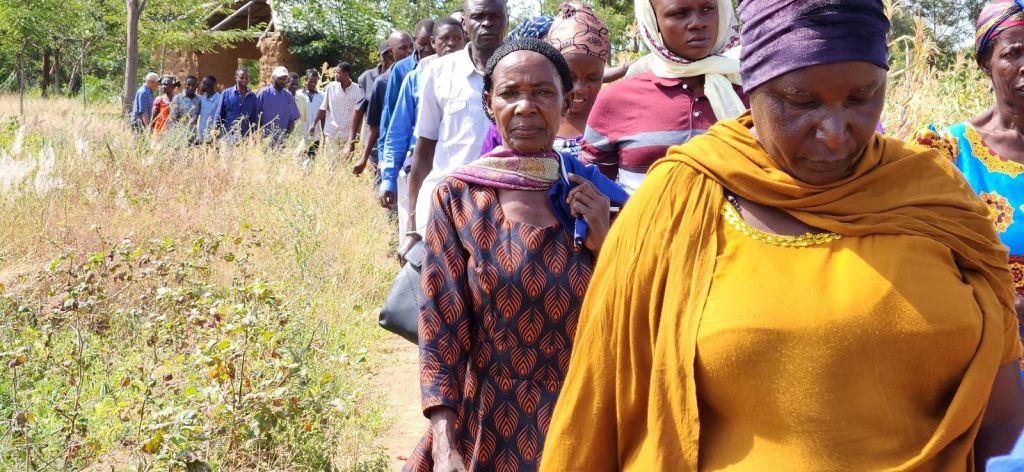
The choirs started singing, the preachers started praying and preaching and I was led observing from a shady tree by the hand, by a determined mama to a room where lunch was served. This room actually looked out the window to the pastors so as I ate lunch, a funeral service proceeded lass than three metres from the fish I was munching on. All a bit surreal.
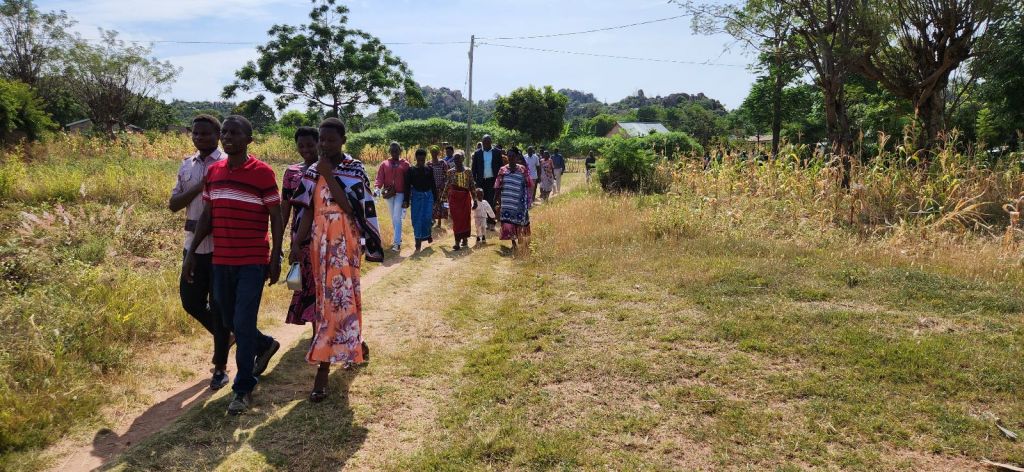
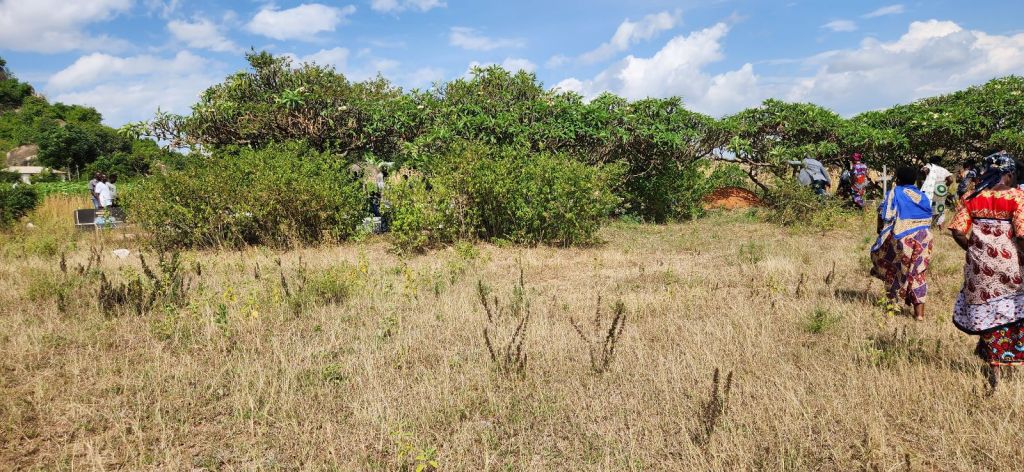
Once the official bit was done (and we had finished lunch) it was off to the graveside. Now this was at least a one kilomtre walk through open fields planted with maize, cassava and other grain and overlooking a scenic view to the north. The cemetery was the Mennonite cemetery hidden by thickets of bush. A more peaceful resting place would be difficult to imagine. A wander through the cemetery revealed graves over sixty years old and headstones which testified to the lives of many.
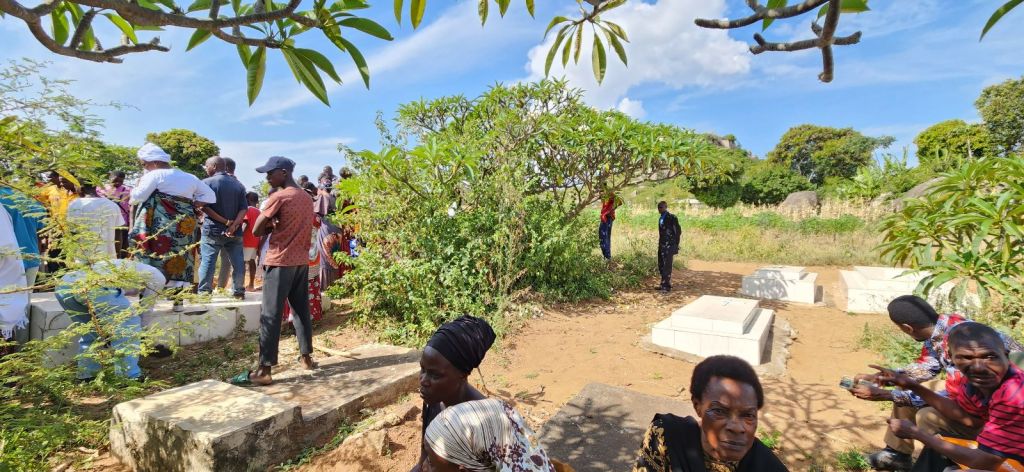

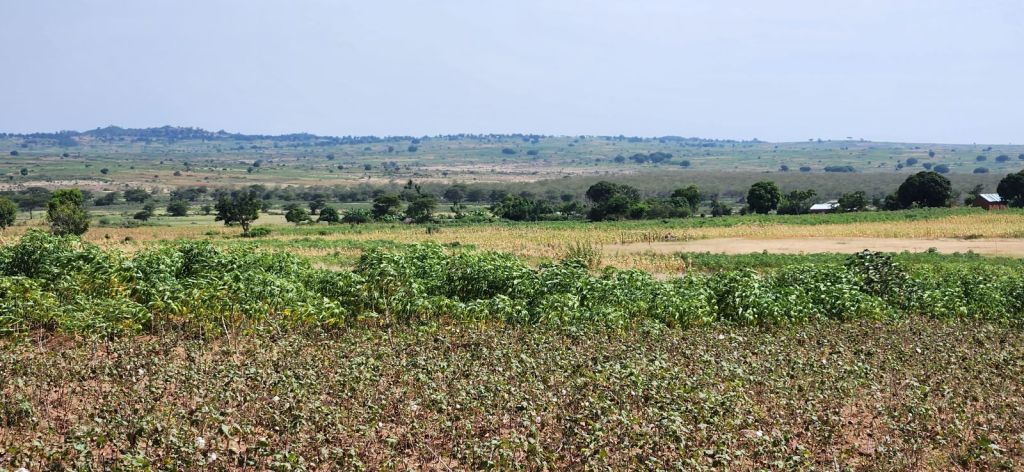
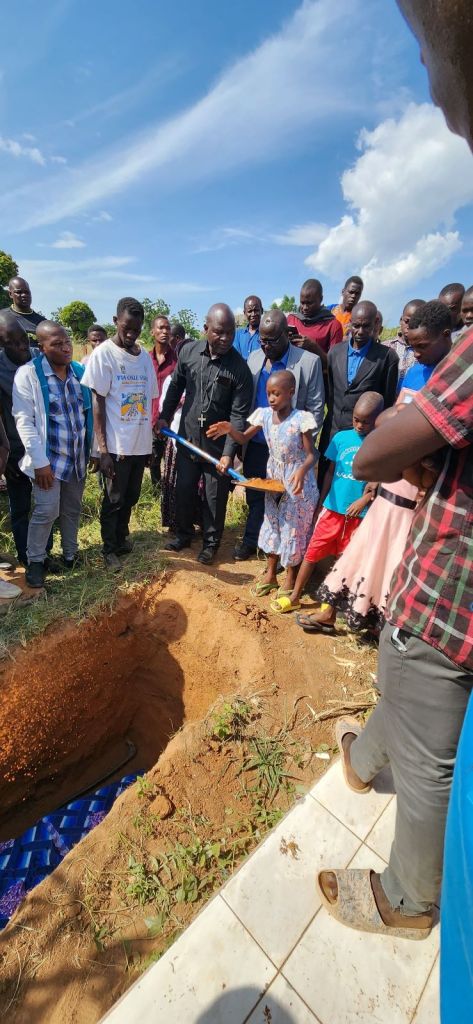
The burial was awkward. Bishop George was left alone as both pastors remained at a distance. So Bishop took charge in the absence of anyone else directing the traffic and gave directions. The boys carrying the coffin were instructed to place it in the grave. No ropes or hydraulics. It is a couple in the hole and the coffin passed down as they receive it and lower it to the ground. Bishop suggested they sing a few songs. He then asked for a shovel and loaded a pile of dirt and invited the family of three kids to drop a handful of dirt into their father’s coffin. This followed with the ex-wife and many others doing likewise and before long the coffin top was covered just from handfulls of dirt.
Meanwhile, I remember after my first visit to Mugango my friend from Lancaster Pennsylvania who commeted to me a year ago that his father was buried at Mugango, so that caused me to seek out the Mennonite pastor and ask him about my friend’s father. He and two others took me about 500m to the grave which now sits maybe 70m from a house and under a large tree that was probably planted around the time of the funeral in 1945. I took photos to share with my friend who I will see in Lancaster in late July when I am there (we have a number of friends and are there for two plus weeks – Lancaster is home to the Amish and Mennonites).
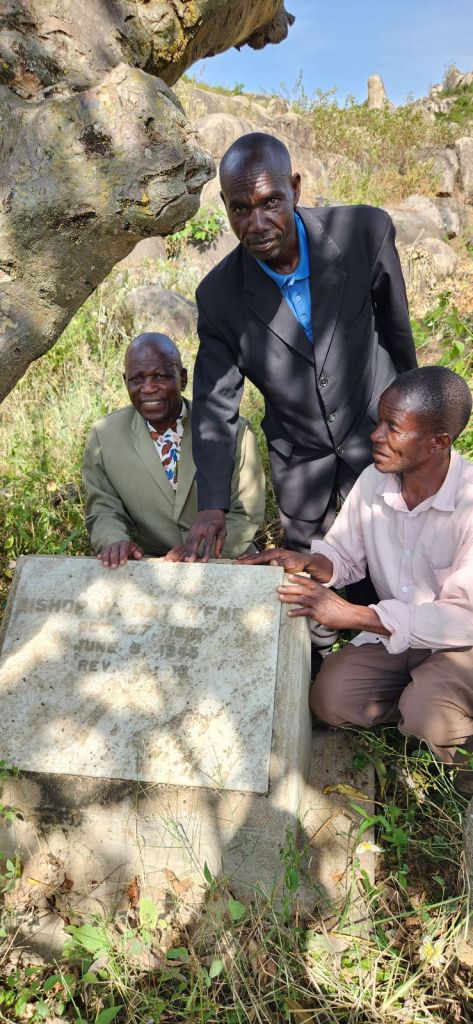
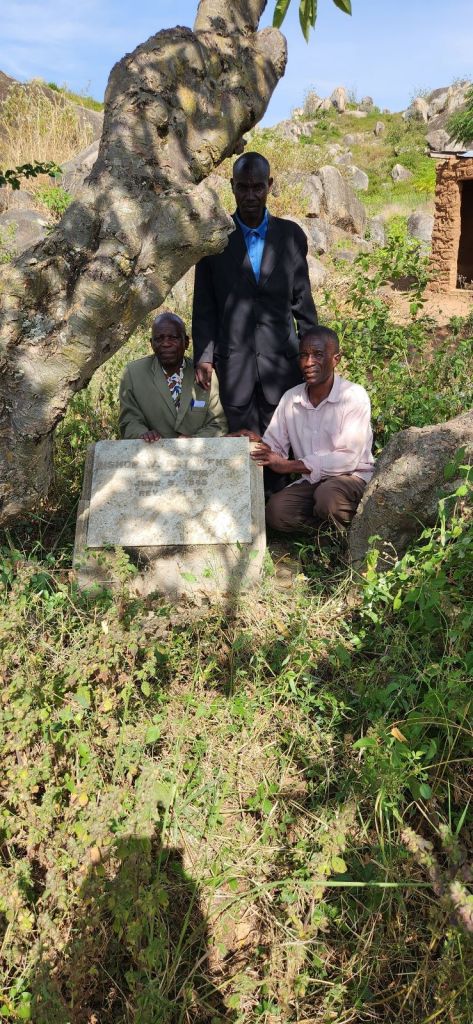
From that grave we proceeded back to the house where all the vehicles were and past the Mennonite Church, the house where my friend would have spent his early years before his father died and in amazingly good condition for a ninety year old building.
On the way back to Musoma on an all dirt road, not in great condition I kept wondering how did they get here ninety odd years ago. It would have been scrub country, no roads and maybe a track but it highlighted the commitment of missionaries and their zeal to travel to remote and inhospitable places to bring hope through the gospel. Amazingly an American who died eighty years ago is still honoured and remembered by this community.
